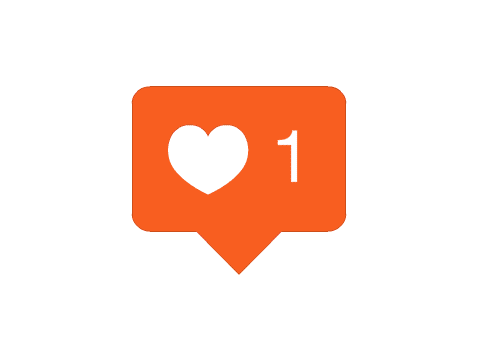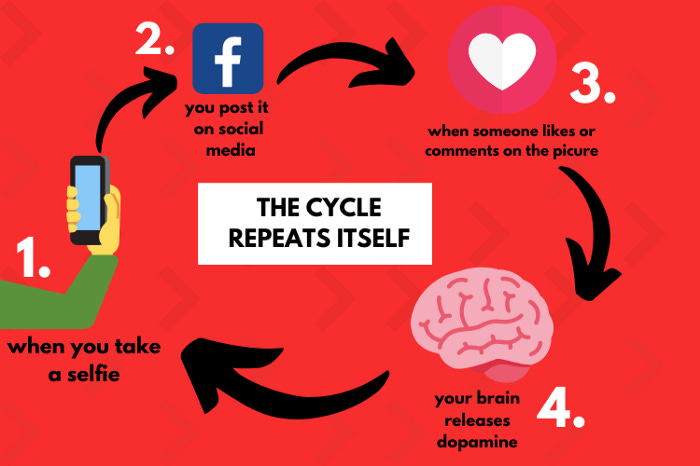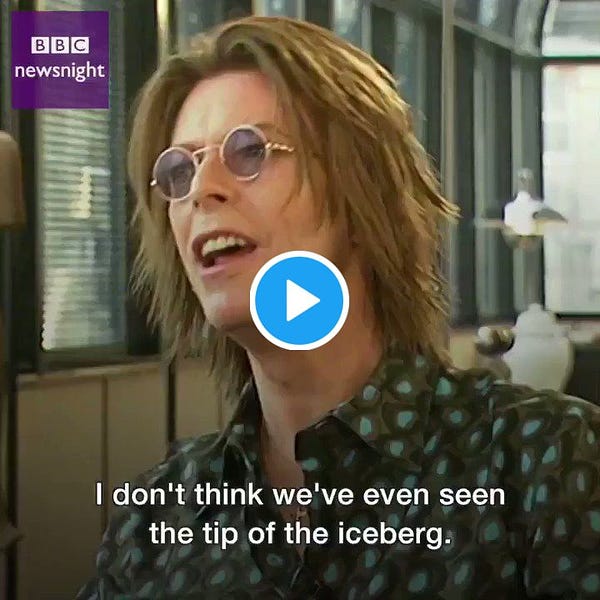Social Media and the Internet — a Secret Dangerous Problem?
The Ugly Side We Aren't Paying Enough Attention
Welcome to a brand new issue of Humber Views! On this sensational Saturday, I’m showing you the side of Social Media people don’t talk about enough. I’m talking about the dark side of the Internet.
And if you enjoy this piece, make sure to subscribe below so you don’t miss out on any future stories in the coming weeks. As well, if you like the piece, feel feel to share this story with your friends.
Sincerely,
Jibril Osman
The Side Of Social Media And The Internet We Chose To Ignore
By Jibril Osman
One day, 23-year-old Instagram user Mohammed Alchaer asked his best friend to take photos of him on his Instagram page. After taking the photo, the session finally came to an end. Following deliberation with his friend, Alchaer decided on the best photo to post on his page. Immediately after posting the photo, the only thing that he cared about is how many likes and comments the photo had gotten. Fifteen, then 30 minutes later, disappointment set in as the photo didn’t generate what he wanted.

Alchaear is one of millions of people on social media in 2020 who buy into the concept of what makes you feel important and valuable. Likes and comments and followers are a new currency of the world and after decades of internet growth, the downside of its existence is as apparent as ever.
“It’s an addictive feeling, getting the likes and the acknowledgement, I’d be lying if it doesn’t make me feel good. I know that in the grand scheme of things it doesn’t matter, but it kind of does to a certain extent and I do really enjoy it,” Alchaer said.
Alchaer’s sentiment towards social media how it evokes joy is a real psychological feeling. In a piece by Cosmopolitan in 2017 titled “The psychology of a like: How social media is really affecting your brain” psychologist Emma Kenny says, “It’s a reward cycle, you get a squirt of dopamine every time you get a like or a positive response on social media.”

Even users can get a confidence boost from the likes, there are the people who are only online to berate and attack with comments. The problem is widespread regardless of how many followers you have. Paul Jason Klein of the band LANY, with nearly a million followers on his account and nearly as many on the band’s page, knows the sting of it as well, as he said in an interview with the platform STUDIO 01.
“I think there’s been a few moments in time in this band where we’ve put out something and people just like roasting us and … I’m a human being and I can be sensitive at times and that hurts,” Klein said. (Timestamp: 15:22 -15:54).
On the flip side, there are ways social media can be useful. With followers, you can build an audience of your own and build your own very start-up business. Kalid Sultan, a 24-year-old, started his own business this year selling workout equipment online and uses targeted advertising on social media to locate and sell to an audience of people online who would be interested in his product. His success wouldn’t be possible without social media.
“Knowing how to locate my audience and spend money in advertisements to get my item in the faces of people who would be willing to buy it wouldn’t be impossible without Social Media, but the amount of push it gives me is astronomical,” Sultan said.
But even the success stories provoke some skepticism. In 2016, for the Harvard Business Review, Rebecca Walker Reczek, Christopher Summers and Robert Smith wrote a piece titled “Targeted ads don’t just make you more likely to buy – they can change how you think.” The article raises the idea that, even with a success story that can come from social media like Sultan’s, there’s still a dark cloud that hangs over it.
But Mike Liang, the 25-year-old video editor of STUDIO 01, believes you can be successful using Social Media and for it to be for good.
“I run a platform that interviews artists, and by marketing on YouTube and other Social Media outlets we’re reaching people all around the world and they get to find new artists to listen to and they get to watch an artist they love. There can be downsides to Social Media, but this isn’t one of them,” Liang said.
But what about misinformation? It seems to go hand-in-hand with platforms like Instagram. Users post doctored photos to make themselves appear differently. There are slanderous comments by complete strangers. And marketers trying to trick you into thinking how they think. In some ways, 2020 feels like George Orwell’s 1984 dystopia.
Some people saw this coming. In 1999, the late David Bowie spoke to journalist Jeremy Paxman for an interview. This was the year Google came onto the scene, while Mark Zuckerberg was still years away from starting Facebook, and Twitter and Instagram were almost a decade away, but still Bowie summed up the internet perfectly.


The fear really is that it’s no longer controllable — that we’ve reached the point in the world, in society and as a culture, and class that the only thing we can do is try to manage and salvage what we’re left with.
Related Reading
This piece titled “The future of truth and misinformation online” is a research study aimed at bringing us insight into this issue.
Kelly McSweeney wrote a piece called “This is your brain on Instagram: Effects of Social Media on the brain” that touches on key points regarding this problem.
This video link is a Ted Talk called “Impact of Social Media on Youth” by Katatu Mbevi, a young student at Brookhouse School, speaking to her experience on the matter and how we can all relate.
About The Author
Jibril Osman is a seasoned music journalist who has published written, audio, and video interviews on publications like The 405, Rapseason, Clash Magazine, and Beat Route. Jibril ran an independent music and culture blog, Kidfromthe6ix, from 2014-2019, amassing 1 million site visits through more than 1,300 posts.
He can be reached through e-mail (Jibrilosman10@hotmail.com) or on his Social Media below.
Instagram / @JibrilOsman
Twitter / @JibrilOsman_



